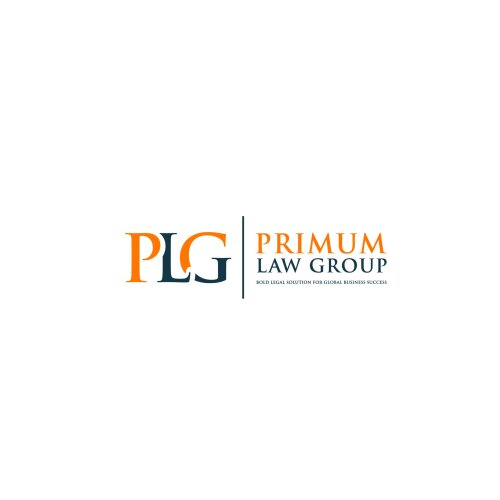Best Sports Law Lawyers in United States
Share your needs with us, get contacted by law firms.
Free. Takes 2 min.
Or refine your search by selecting a city:
List of the best lawyers in United States
About Sports Law in United States
Sports Law in the United States encompasses a wide array of legal issues that are specifically relevant to sports and recreation. It covers matters related to professional and amateur sports, including contracts, torts, agency, antitrust, labor, and intellectual property law. Sports Law often intersects with various other areas of law given the unique circumstances that arise in the sports industry, necessitating legal expertise that is focused on the intricacies of sports-related issues.
Why You May Need a Lawyer
There are numerous situations where individuals or organizations might require legal help in the field of Sports Law. This may include negotiating and drafting contracts for athletes, coaches, or teams, handling disputes related to doping or misconduct, resolving issues with sports organizations or associations, managing injuries and liability cases, and ensuring compliance with relevant regulations and laws. Legal experts in Sports Law can also assist with intellectual property matters, such as the protection of endorsements and sponsorships.
Local Laws Overview
Sports Law in the United States varies across different states and cities, with federal laws also playing a significant role. Key aspects include adherence to antitrust laws which govern issues like league rules and player trade restrictions, labor laws that affect collective bargaining in major leagues, and compliance with the regulations of bodies like the NCAA and professional leagues (NFL, NBA, MLB, etc.). It's important to have an understanding of both state-specific and national regulations as these can influence the management and operation of sports-related activities.
Frequently Asked Questions
What is the role of a sports lawyer?
Sports lawyers negotiate contracts, manage legal disputes, ensure regulatory compliance, and address issues such as intellectual property rights within the sports industry.
How does antitrust law apply to sports?
Antitrust law in sports addresses issues like the monopolistic practices of leagues, player draft rules, and restrictions on player movements to ensure fair competition.
What should I consider in an athlete endorsement contract?
Critical points include the terms of compensation, duration, usage rights, exclusivity, and termination clauses to protect the interests of both the athlete and the sponsor.
Can a coach or player sue for wrongful termination?
Yes, if a coach or player believes their termination violated the terms of their contract or was based on unlawful discrimination, they may have grounds to sue.
What are NIL rights and how do they affect college athletes?
NIL rights allow college athletes to earn money from their Name, Image, and Likeness, impacting endorsement deals, sponsorships, and personal branding opportunities.
How does doping regulation work in sports?
Doping regulation involves testing procedures, banned substance lists, and enforcement by agencies like WADA or league-specific authorities, with legal implications for non-compliance.
What are the legal aspects of sports injuries?
Legal considerations include liability for injuries, insurance issues, and potential claims for damages or compensation depending on the circumstances of the incident.
How do collective bargaining agreements affect athletes?
Collective bargaining agreements define work conditions, salary structures, and dispute resolution mechanisms between leagues and players' unions.
Are there special considerations for minors in sports law?
Yes, contracts involving minors often require parental consent, and there are additional protections concerning labor and safety regulations.
How does intellectual property play a role in sports?
Intellectual property in sports involves trademarks for logos, copyright for media content, and licensing deals for merchandise and memorabilia.
Additional Resources
For additional guidance, individuals can contact organizations such as the Professional Sports and the Law section of state bar associations, the Sports Lawyers Association, or regulatory bodies like the National Collegiate Athletic Association (NCAA). Governmental bodies like the Department of Labor and the Federal Trade Commission can also provide assistance related to specific legal aspects in sports.
Next Steps
If you require legal assistance in Sports Law, it's important to consult with an attorney specializing in this field. Start by identifying qualified sports lawyers or firms that have experience relevant to your specific issue. Prepare a detailed account of your situation and gather any relevant documents or evidence before your consultation to ensure a thorough and productive discussion.
Lawzana helps you find the best lawyers and law firms in United States through a curated and pre-screened list of qualified legal professionals. Our platform offers rankings and detailed profiles of attorneys and law firms, allowing you to compare based on practice areas, including Sports Law, experience, and client feedback.
Each profile includes a description of the firm's areas of practice, client reviews, team members and partners, year of establishment, spoken languages, office locations, contact information, social media presence, and any published articles or resources. Most firms on our platform speak English and are experienced in both local and international legal matters.
Get a quote from top-rated law firms in United States — quickly, securely, and without unnecessary hassle.
Disclaimer:
The information provided on this page is for general informational purposes only and does not constitute legal advice. While we strive to ensure the accuracy and relevance of the content, legal information may change over time, and interpretations of the law can vary. You should always consult with a qualified legal professional for advice specific to your situation.
We disclaim all liability for actions taken or not taken based on the content of this page. If you believe any information is incorrect or outdated, please contact us, and we will review and update it where appropriate.
Browse sports law law firms by state in United States
Refine your search by selecting a state.
















